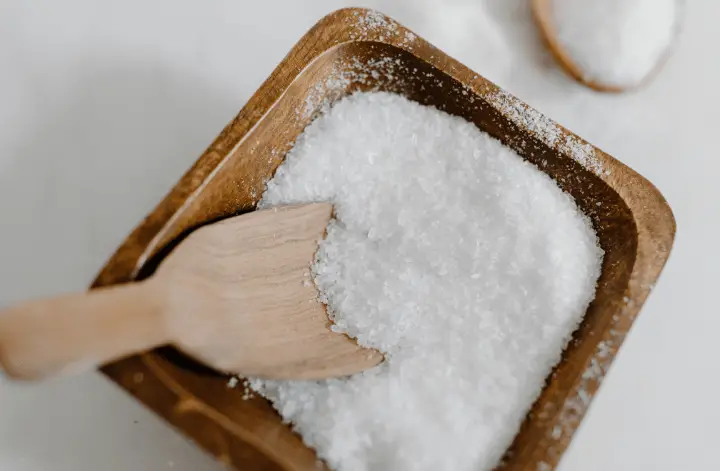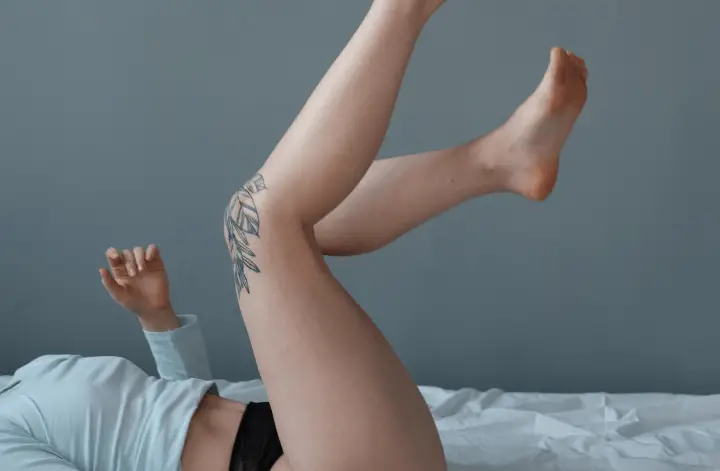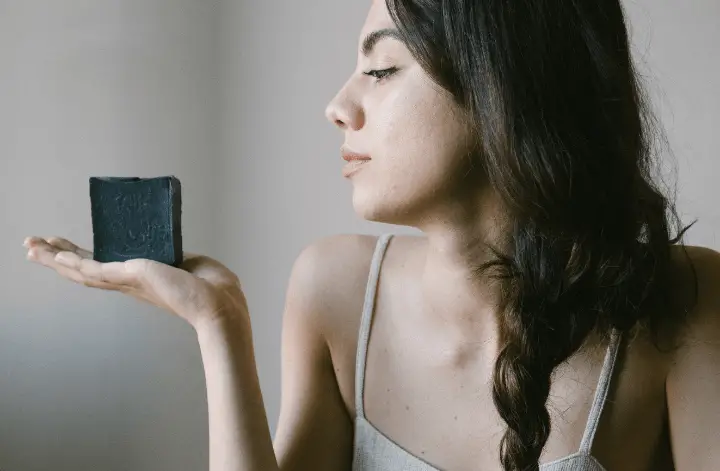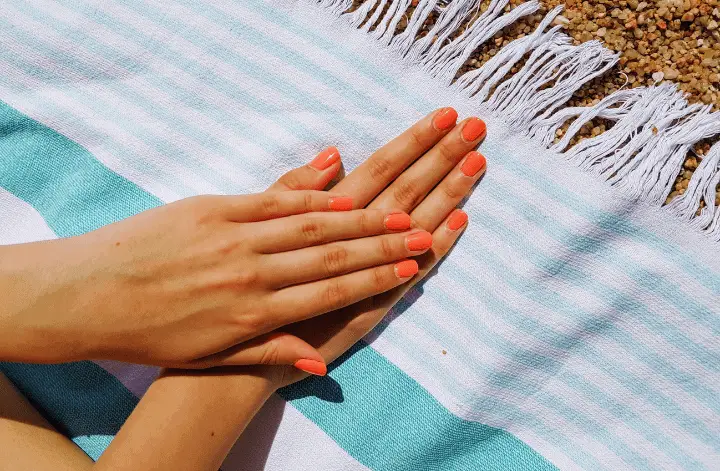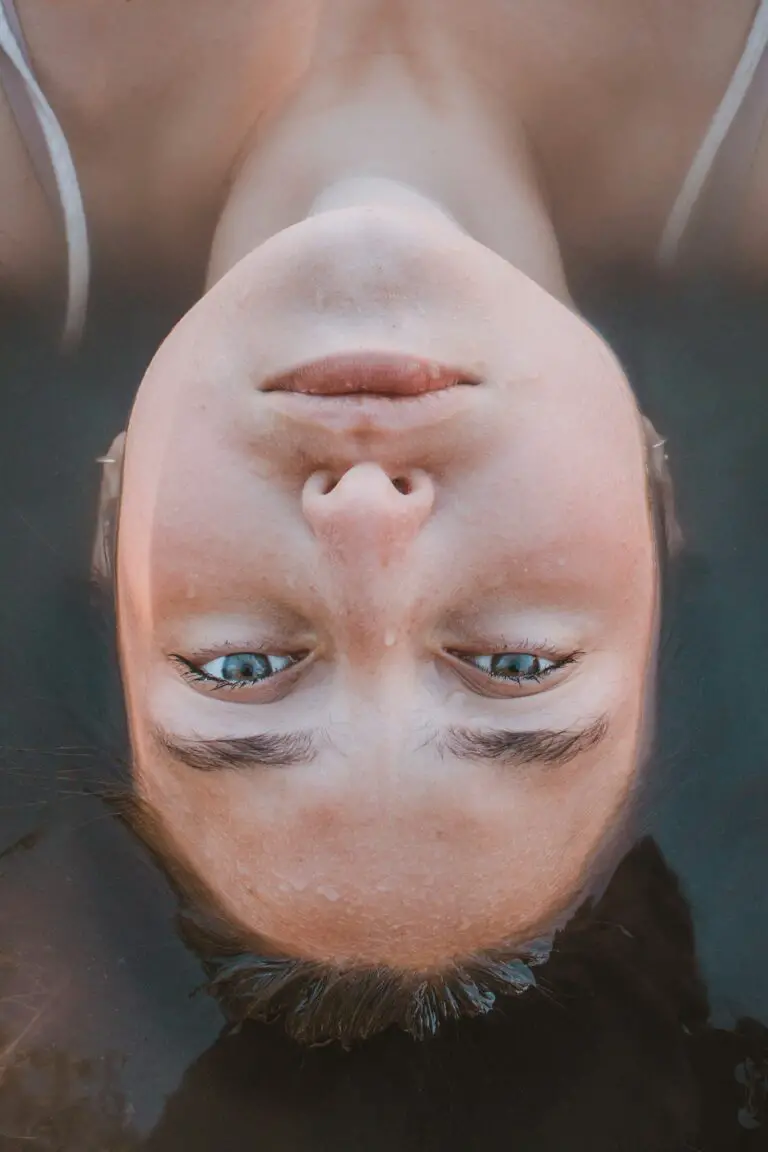Yes, there are beauty products I still buy as a DIYer.
I am a natural-born DIYer and not just about skincare. I love the feeling of independence and self-reliance every time I discover I can actually make something myself, instead of having to rely on finding what I need on the market.
Also, knowing that every single ingredient is organic, fresh, natural and properly sourced is another huge plus for me!
I’ve been making my own skincare and body care products for about 15 years – I love it! Having said that, I don’t make absolutely everything myself all the time. I like knowing that I can if I need to, but there are some items that I sometimes prefer to buy already made.
The beauty products I still buy can be due to the hassle in making them at any particular moment. Especially if I have other stuff that I’d prefer to do with my time. Other times it’s the fact that I have yet to find a DIY recipe that works 100% for me.
It can also be because I happen to love that product and enjoy using it. Or because I feel like treating myself by buying something a bit more exotic. I tend to favor basic and versatile ingredients, in simple and fuss-free recipes for the day-to-day routine stuff.
Whatever the case, and despite being a minimalist-essentialist at heart and hating to spend money on things I don’t actually need, here is a list of products I still prefer to buy as a DIYer.
Related content: The Skincare Products You Don’t Need (which one are you wasting your money on?)
Beauty Products I Still Buy as a DIYer
1 – Sunscreen
The most regular on the list of products I still buy as a DIYer is sunscreen. This is an example of something that is both a hassle to make and I’m not all that satisfied with the results.
First of all, I should clarify that my main method of sun protection are clothes. Meaning, I wear hats and light, long-sleeved tops to protect myself in warm weather, while also taking care to walk on the shady side of the street.
But for those times when I’m more out in nature or I’m at the beach, I do wear some type of sunscreen.
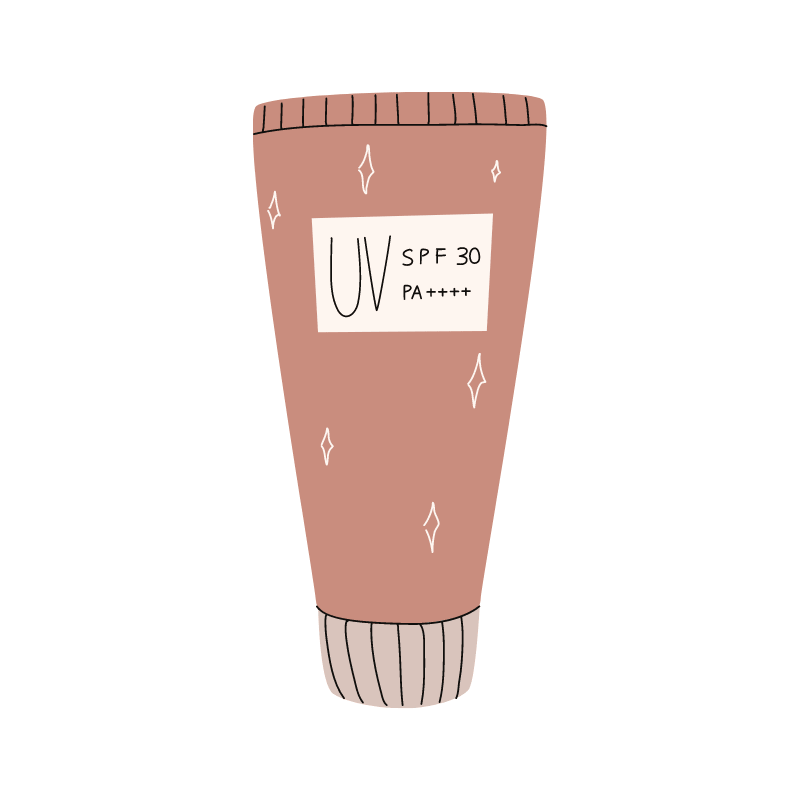
I’ve been wearing sunscreen for many, many years and I’ve tried many different kinds. All marketing aside, basically you’ll find two general types.
Chemical sunscreens. These are absorbed by the skin. They tend to be more comfortable (i.e. less greasy), but of course they’re usually full of endocrine disruptors and perfumes.
Physical sunscreens. These sit on top of the skin, as a shield. They are generally safer for your health, but they’re also usually greasier and they tend to leave a white cast on the skin.
If I’m honest, I’ve yet to find a natural and comfortable sunscreen that ticks all the boxes. That’s a big part of the reason why I prefer to protect myself with clothes – it’s just more comfortable!
Why not DIY?
I’ve tried making my own sunscreen many times of course, but there is more than one reason why this is a product I still buy:
For all these reasons I’ve compromised on a solution that involves purchasing a commercial organic, all-natural, perfume free, paraben free, everything-free sunscreen to use on my body, when I need it.
And for my face I decided to buy a moisturizer I love and trust (more on that below) and mix it with non-nano zinc oxide powder, to turn it into an impromptu non-greasy sunscreen.
To prevent major issues with proper pH balance and whatnots, I squeeze out a small amount of cream at a time into a small sterilized jar and add the powder to that. This way I know I won’t have to worry about long term stability of the formula, because I’m using it up very quickly. I usually mix an amount for 2 or 3 days.
It has the added benefit that the resulting cream doesn’t feel greasy and uncomfortable on my skin. It does leave a bit of a white cast, but it sort of blends into my skin easier because it’s not greasy. After an hour or so on my skin it gives it a nice rosy glow.
Why zinc oxide specifically?
One thing I discovered about zinc oxide that made me happy: it has actual beneficial properties for the skin!
When I was making my own sunscreen, I would notice that after a few days of using it on my face the skin seemed to look so much rosier and healthier – like plump and healthy. I got online to see if zinc oxide actually did something to the skin, besides shield from the sun and apparently it does!
It’s been used for decades, both as sunscreen and acne treatment.
As for which body sunscreen I do buy, it actually depends. If I’m honest, there’s not one brand that I’m completely satisfied with. I just look at the ingredients to make sure it’s as natural as possible, that it doesn’t have anything dubious, that it has as little plastic as possible, and I make sure it’s at least 30 SPF.
Related content: All Things Sunscreen & How To Really Protect From The Sun
2 – Toothpaste
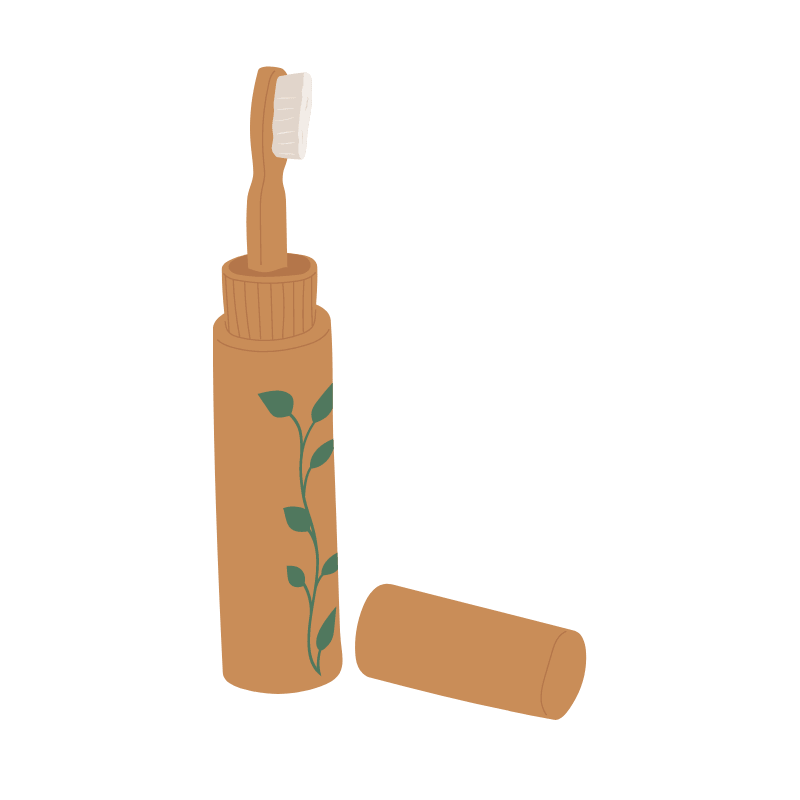
This is a recent addition to the list of products I still buy as a DIYer. I made my own toothpaste for many years. It’s one of the first things I tried DIYing and I had generally been happy with the results.
I’ve used the classic coconut oil, with and without baking soda, or with clay. Or just the clay, with or without some peppermint essential oil to make it minty fresh. I’ve even tried brushing my teeth with homemade soap (would NOT recommend)!
However, in the last year or two, for some reason, they’ve not been working very well for me. I started developing these stains on my front teeth that after some research seem to be related to acidity levels. Like acidic foods or beverages I might be consuming. My diet has changed somewhat in the last two years, but I just couldn’t see where this acidity might be coming from.
I started to get very frustrated and decided to try a commercial all-natural toothpaste. I looked at several options. I was doubting between one from Dr. Haushka (a brand I know and trust) and Georganics one in powder form. So I bought both.
Both toothpastes worked wonderfully and after just a few times brushing my teeth the stains went away completely. I was so happy with the results and the experience – both pastes tasted and smelled amazing.
So for the last few months I’ve been using both of them interchangeably and I believe it’s money well spent. The tooth powder has actually inspired me and I will be attempting to make a DIY version of it. I’m doing some research and I’m quite excited about it – we’ll see how that goes.
3 – Facial Cream a.k.a Moisturizer
This is a constant in the “beauty products I still buy as a DIYer” category. It can be such a headache to make, having to sterilize everything beforehand. Another case of DIY hassle coupled with an excellent and inexpensive commercial version available. I do have periods when I make creams quite regularly (I get into it), but then always comes a busy period and I lose the habit and end up reaching for some oil or fat, because it’s simpler.
I want to start out by clarifying my concept of “moisturizer”. I’ve pretty much done the same over the last 15 years to moisturize my skin. I mix a few drops of DIY nourishing face oil with water or toner. I mix it either in the palm of my hand or I simply apply the oils on skin still wet from the toner.
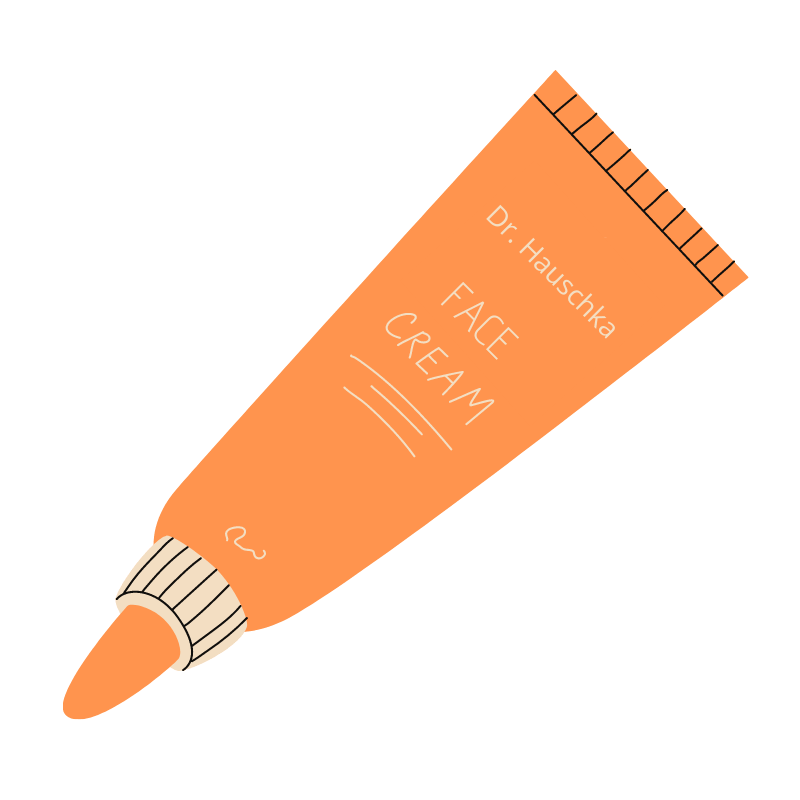
This is something I learned from the book “Absolute Beauty”, by Pratima Raichur. I’ve mentioned this book before, more than once, and would totally recommend it to ANYONE interested in an all-natural, holistic, minimalist DIY approach to skincare.
If you think about it, the concept is basically the same as a lotion or cream, which is a mix of oil and water. The difference here is that lotions and creams are stabilized emulsions (mixes) of oil and water. By applying both to your skin directly on the spot, you skip having to preserve the mixture and worrying about the freshness of the ingredients.
All this just to say I mostly don’t use creams or lotions in my day-to-day life, so I don’t really have the conundrum of “if I don’t make it myself, I’ll have to buy it from someone”.
When I do decide to buy a cream though, either to make my facial sunscreen mixture or just because I feel like changing up my routine a bit, I usually always go for Dr. Hauschka face creams.
Why Dr. Hauschka?

I LOVE Dr. Hauschka! It’s one of the first all-natural, organic brands I discovered that really blew me away. Not just because of the quality of the ingredient list, but also because of its history.
They are a product of a homeopathic branch of a proper German pharmaceutical company, in collaboration with Elisabeth Sigmund (researcher, medical student, holistic esthetician) back in the Fifties.
It’s kind of a German tradition, incorporating natural medicine into standard medicine – they’re miles ahead of everyone else in the Western World when it comes to this. I also love that they’ve had decades of experience creating good products and they know what works. I’ve must have tried most of their face creams.
What I love about them
- All the ingredients are natural and organic.
- They’re affordable.
- The scents are always amazing, so fresh and natural – like smelling a garden!
- They approach skin from a dermatological (science-based) perspective more so than from a marketing (fad-based) perspective – so the results are there! Let’s face it, that’s what you really need and should be getting from your skincare.
- They’re also cruelty-free
Some of their products do contain alcohol and added perfume but always from natural sources (like essential oils), never synthetics. If you are sensitive to these ingredients, or you just prefer not to use them, just make sure to double check the ingredient list on a product before buying. That’s sound advice all-round, no matter how natural the brand.
They target different skin concerns but they’re not necessarily specific to skin types. This means they target specific skin issues that most skin types might be faced with at one point or another, like dehydration, irritation, sensitivity, or just ups and downs in sebum production (oiliness of the skin).
Related content: Here are the Most Effective 3-ingredient DIY Face Moisturizers
4 – Deodorant
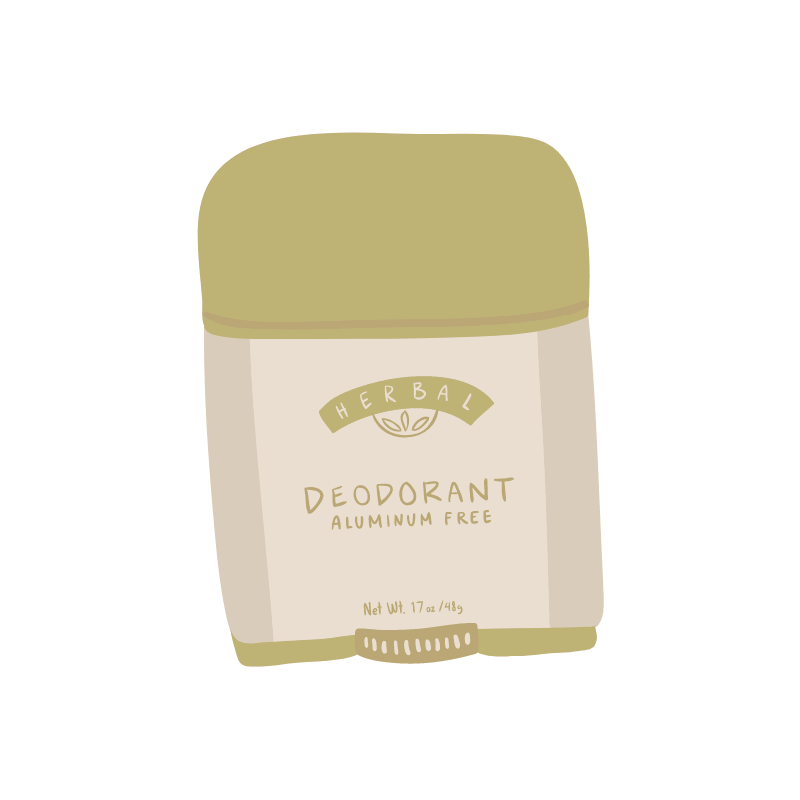
This category has been a headache for me forever! Even well before I started worrying about whether or not it was natural, I had a hard time finding one that worked all day.
There were a couple that did the job, but when I tried to make the change to natural deodorants I hit a massive wall.
I tried all kinds of natural brands that I could get my hands on but none really worked.
I’ve tried many DIY versions throughout the years but none of them were definite solutions for me.
It’s endlessly frustrating for me. They either don’t last the whole day, or they work for a while, but then stop working for whatever reason.
Lately (for the last year) I’ve been making due with layering two deodorants. I use one store bought (a basic alumstone) and a DIY deodorant (coconut, cocoa butter, beeswax, zinc oxide, baking soda, lavender essential oil).
If I just use a salt stone, it doesn’t work; if I just use the DIY one, it doesn’t work. Together they serve me adequately, though I’m still frankly not crazy about the result. Bottom line, I’m still looking for that perfect solution – it’s definitely a product I still buy as a DIYer! Suggestions welcomed!
I’ve heard great things about Native deodorant, but unfortunately they don’t currently ship to Spain (where I’m based).
5 – Active Principles: Retinol, Niacinamide, Etc.
And finally, the latest addition to the list of products I still buy as a DIYer are isolated active principles. This is a totally new category of products for me that’s specific to the last year only.
I’ve always pretty much made my own serums. The quality of the ingredients and the use of essential oils has done such a great job on my skin over the years that I’ve simply not felt a need to add special store bought anti-aging “superheroes”.
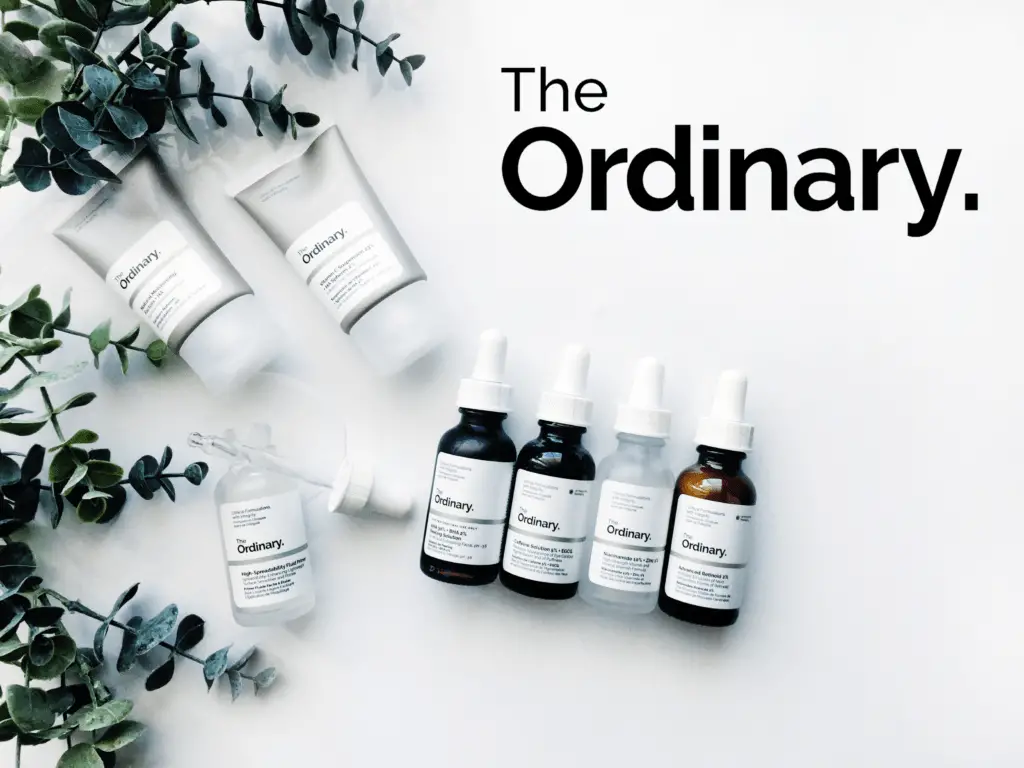
However, over the last two years or so my skin has been changing (as it does) and I’ve felt the need to up my skincare game. I also feel that I’ve been doing basically the same thing for quite a few years and I thought it’d be fun to add a little something extra and see what happens. After much research I decided to give the ol’ retinoids a try first.
Why retinol?
Topical vitamin A is one of the few things that science has actually backed irrefutably (which is a lot) as a guaranteed anti-aging power tool for the skin. It also has decades of use. One single search on Youtube for women who’ve been using Retin-A for sometimes more than 2 decades will attest to the amazing benefits of vitamin A creams for the skin.
Now, Retin-A specifically uses retinoic acid (or tretinoin), which is a very strong Vitamin A precursor. That means that it will turn into Vitamin A in your skin. Depending on where you live, tretinoin might be prescription only and it does come with a couple of highly questionable ingredients and well-known endocrine-disruptors. Not to mention the oftentimes uncomfortable adjustment period. It is strong stuff!
For these reasons I decided to try one of the more “user-friendly” retinol options on the market. Retinols are also Vitamin A precursors, but they’re one or two steps further away from turning into Vitamin A, than tretinoin. So basically, tretinoin is one step away from turning into vitamin A in your skin and retinols are one or two steps away from turning into tretinoin, which will turn into vitamin A.
They’re softer on the skin and the results will take longer to register, but by most accounts it should produce basically the same result in the long term. Although this depends on who you ask.
Results
I’ve been using retinols for about 11 months now and I’m pretty happy with the results. So far:
I first tried a natural, organic brand I found online, but I didn’t really like it – it had a perfume type of smell and the texture was too watery for me. I then looked around a little further and decided to give The Ordinary a try.
Why The Ordinary?

Now, they’re not an organic brand per se, but they are a minimalist, stripped down to basics brand, which I 100% love! The formulas will usually have the active principle (in this case retinol) mixed with just one or two other ingredients. It will be just the basics – enough to dilute the active to an appropriate percentage, maybe complement it with another active, deliver it to the skin, and that’s it!
For someone like me, who has a minimalist approach to skincare, this is perfect.
On top of that, because of their business model for this particular brand, they don’t really do marketing and they’ve grown through word of mouth. That means that their products are very reasonably priced! It’s a great brand with which to experiment with actives in your skincare, without breaking the bank.
This may or may not change gradually. As of two or three years ago, Estée Lauder has owned a minor stake in Deciem (the umbrella brand that includes The Ordinary). Let’s all hope it doesn’t go the way of The Body Shop! (R.I.P.)
Also, depending on your consumer values you might not want to support that parent company who now has influence over the brand, which I totally get. Otherwise it’s worth checking out.
From The Ordinary I’ve also tried their Buffet Copper Peptides – it was OK, but not mind-blowing. And I’m currently testing the Resveratrol & Ferrulic acid, as well as the Niacinamide & Zinc.
The only one I have repurchased so far is the retinol, although there are a couple of other brands that I want to try out as well. I will keep you posted. Also, let me know if you have any suggestions!
Related content: How To Layer Skincare (Like You Know What You’re Doing!)
So that’s it. These are the commercial beauty products I still mostly buy at the moment, as opposed to DIYing. This list changes somewhat regularly, depending on my circumstances and needs. And of course I’m always up for discovering new brands that deliver results and have an eco/social/consumer conscience.
Most of the products I still buy are down to having found brands that provide excellent, inexpensive formulations I don’t have to feel guilty about using!
What about the DIYers out there? What products (if any) do you guys still usually prefer to buy?


